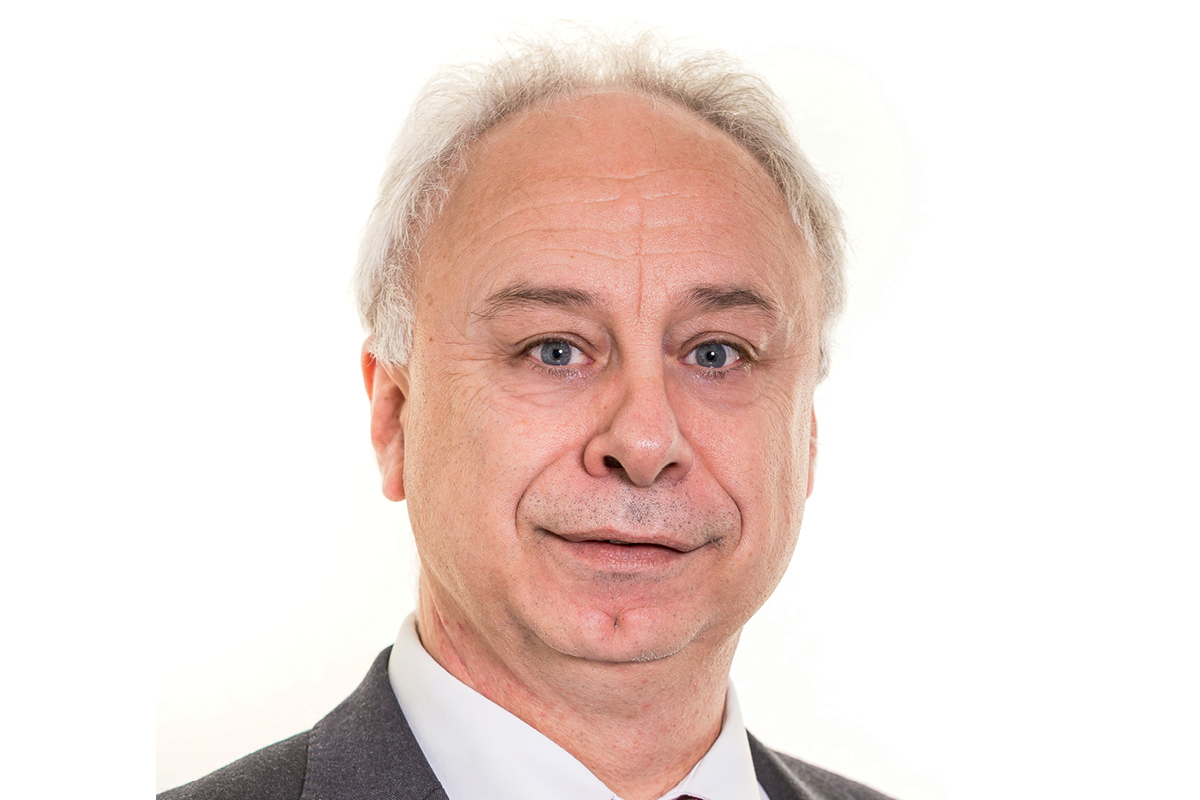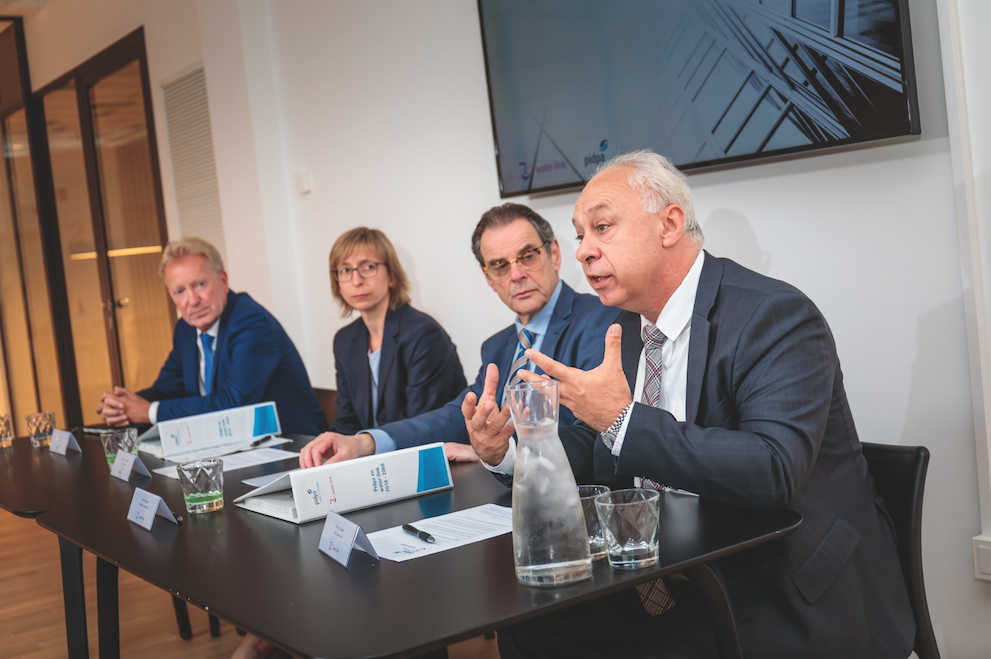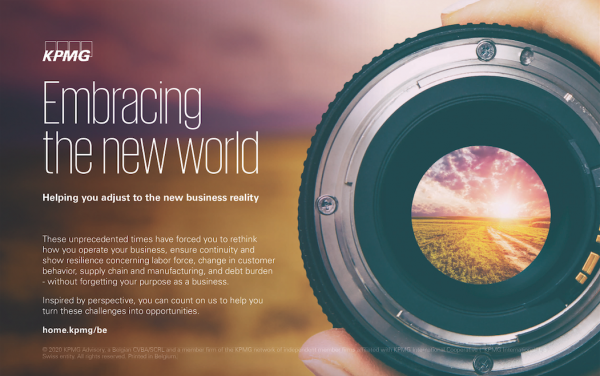For the past three summers, heatwaves have rolled across the towns and fields of Flanders, baking a landscape already parched by a severe lack of rainfall. Last summer, Belgium’s Royal Meteorological Institute declared an “exceptional” drought, local authorities called on residents to use water “only if strictly necessary”, and the Flemish Environment Agency began to draw up guidelines on how to prioritise different types of water use.

With the region’s extreme weather expected to worsen over coming years, one local business has stepped up to mitigate the water shortage by ensuring a steady supply of drinking water to households and businesses across the region.
“The exceptionally dry summers of 2017, 2018 and 2019 were a wake-up call,” says Franky Cosaert, CEO of Water-Link, the largest water producer in Flanders.
“The experience taught us that climate change is rapidly catching up with our vision. Suddenly, there was a shortage of drinking water in parts of the Flanders region. Climate change is here, so we must put forward sustainable solutions quickly in line with our strategic partnerships,” he says.
Before taking the reins at Water-Link in 2015, Franky held several posts at the French energy company Engie, including heading its China branch. He says he was drawn to this job by the tantalising challenge of delivering drinking water to the bustling city of Antwerp and its surrounding regions in a time of extreme weather and water shortages.
“It seemed like an interesting challenge to be able to guide Water-Link through the major transition it faced. Although quite local, this water company lies not only in the heart of the largest Flemish city but also in the centre of one of the world’s leading ports with one of the biggest petrochemical clusters,” Franky says.
“Some aspects of these challenges were quite familiar to me because commodity water faced the same challenges as energy did years before. I knew I was up to the task.”
Transforming for the future
According to Franky, it was clear that one of the first tasks he would have to undertake as CEO was to transform Water-Link from a pure commodity supplier into a products and services provider.
Sometimes it’s a bumpy ride, but it is very important to see eye to eye and keep in mind that we all want the company and our clients to benefit from what we do.
“Water-Link is an atypical water supplier because it operates in a free market for the industry, and out of all the other water companies in Flanders, we were one of the first to make the switch, aspiring to deliver more added value to our customers,” he says.
The switch involved three strategic goals. First, Franky set out to devise innovative solutions to meet the needs of Water-Link’s clients. One such solution is Nereus, a new facility that converts wastewater and rainwater into drinking water using dynamic ceramic nanomembranes and reverse osmosis.
Water-Link has also rolled out more than 70,000 digital water meters that help its clients reduce water consumption, prevent leakages and detect harmful backflow in their drinking water distribution networks.
The second goal is to forge new strategic partnerships, such as the one between Water-Link and Aquafin – a public company that specialises in sewage treatment. Other partnerships have allowed Water-Link to share facilities and transportation grids with other companies to maximise delivery security.
Finally, in collaboration with the Flemish research and innovation hub IMEC, Water-Link is developing a chip that can be integrated into existing digital smart meters and to allow real-time monitoring of drinking water quality.
“This is how we can contribute to the promotion of tap water as a full alternative to bottled water,” Franky says.
A bumpy road
The third strategic goal may be the most important, but has also proven the most complex. Over the past four years, Franky has sought to sweep away Water-Link’s traditional corporate culture and build a “team of the future”.

“To cope with today’s new challenges, for the past four years our team has gone through an intense period of change. This was quite a challenge because most of our staff had been with us for many years without any significant changes,” Franky says.
In addition to raising the training budget from €30,000 to €800,000, Franky also hired a cohort of newcomers, raising Water-Link’s workforce by 20%.
“At first, there was some resistance to change, but ultimately, the technical experience and company pride of the old guard merged well with the new skills and modern mindsets of the newcomers, and this proved to be the key to our successful cultural transformation,” Franky says.
“The experience taught me the value of patiently explaining the reasons for change to our workers rather than trying to force new concepts on them. Everyone accepted the change when we were able to explain the benefits for the entire company and the employees themselves. Sometimes it’s a bumpy ride, but it is very important to see eye to eye and keep in mind that we all want the company and our clients to benefit from what we do.”
Following the transformation, Water-Link has been able to further distinguish itself from the competition.
The company recently introduced its new Integrated Control Centre, which combines all of its existing tools and expertise to remotely control the company’s assets, including two drinking water production centres, industrial processing plants and the drinking water networks of Water-Link and its partners. Franky plans to open the new building of the ICC in 2022.
“With our focus of smart partnerships and innovative solutions, we make the difference. Due to our size and short decision lines, we were able to start the implementation of new strategies quickly,” Franky says.
“Water companies have the profile of being a bit conservative or not very sexy. But the challenges of climate change and the changing expectations of our clients have changed the ball game completely over the past few years. I think this makes my job, and the challenges of the water sector, very exciting.”
Proudly supported by:



